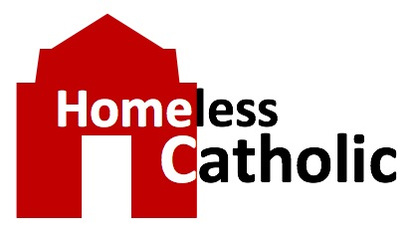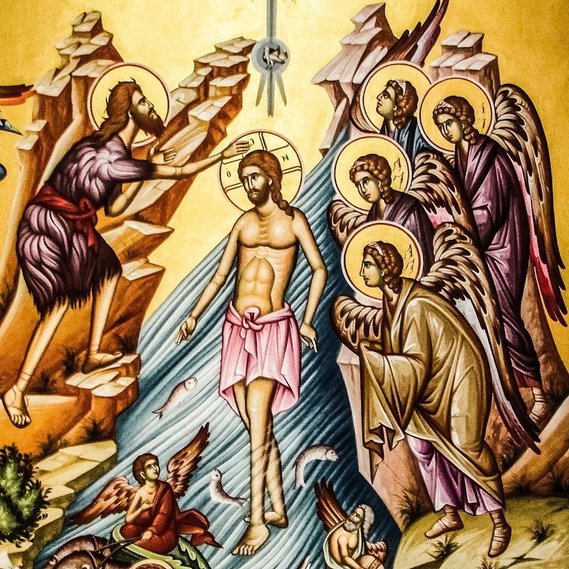Sorting out the details
John the Baptist was using an analogy to make a point. The bridegroom (in this case, Jesus) is WAY more important than the best man, but the best man, who’s job is to support the bridegroom, is filled with joy to hear the voice of bridegroom.
The best man is John the Baptist. He “made straight the path for the Lord” and is now ready to become more of a follower than a leader.
Image by Dimitris Vetsikas
Sorting Out the Details
By Steve Leininger
https://bible.usccb.org/bible/readings/010822.cfm
1 John 5:14-21
John 3:22-30
I really enjoy the details I learn from the Gospel readings when I am tasked with preparing a reflection for our Wednesday prayer meetings. Our readings today are from the 3rd chapter of the Gospel of John. It starts out:
Jesus and his disciples went into the region of Judea,
where he spent some time with them baptizing.
John was also baptizing in Aenon near Salim,
because there was an abundance of water there,
and people came to be baptized,
for John had not yet been imprisoned.
[John 3:22-24]
This seems like a good start, because we are told who, what, where, and when of our readings. The “who” is Jesus and his disciples and John the Baptist. The “what” is baptizing. It is notable that Jesus is spending time with his disciples performing baptisms, an activity that is not ascribed to him in the gospels of Matthew, Mark, or Luke. Note that this is not the story of the Baptism of Jesus, which is covered in the 3 synoptic gospels, but by inference has already happened as we read further in John.
The version of the Baptism of Jesus from Luke states:
The people were filled with expectation,
and all were asking in their hearts
whether John might be the Christ.
John answered them all, saying,
“I am baptizing you with water,
but one mightier than I is coming.
I am not worthy to loosen the thongs of his sandals.
He will baptize you with the Holy Spirit and fire.”
After all the people had been baptized
and Jesus also had been baptized and was praying,
heaven was opened and the Holy Spirit descended upon him
in bodily form like a dove.
And a voice came from heaven,
“You are my beloved Son;
with you I am well pleased.”
[Luke 3:15-16, 21-22]
Let’s take a detour to find out more about baptism. In Jewish custom, immersion in water for ritual purification was established for restoration to a condition of "ritual purity" in specific circumstances. It was not the same as John the Baptist’s baptism by immersion in water as an act of repentance. John’s baptism ministry was one of preparation for the coming of the Messiah. He refers to the prophet Isaiah as he says, “I am ‘the voice of one crying out in the desert, “Make straight the way of the Lord.”’ Did the baptism we use today in most Christian denominations originate with John the Baptist? There may have been others baptizing (or not, the history is not clear on this), but certainly the rite of Baptism is an extension of John’s work to include baptizing in the name of the Father and the Son and the Holy Spirit.
Back to the where and when. The location is specified as the region of Judea (for Jesus and his disciples) and Aenon near Salim for John the Baptist. The exact location of Aenon near Salim has been lost to the ages. Finally, the when. As stated, John had not yet been imprisoned, but that pretty much happens next. This is very close to the very beginning of Jesus’ 3 years of public ministry.
As we continue our today’s Gospel, we get a foreshadowing of some of the issues that Jesus will face.
Now a dispute arose between the disciples of John and a Jew
about ceremonial washings.
So they came to John and said to him,
“Rabbi, the one who was with you across the Jordan,
to whom you testified,
here he is baptizing and everyone is coming to him.”
[John 3:25-26]
The identity of the Jew is not clear in the reading. The “smart notes” for the New American Bible suggest it might be Jesus, but it’s possible that it is a Jewish disciple of Jesus. It turns out not to be as relevant as the substance of the conflict. Jesus is identified by reference as “the one was across the Jordan, to whom you testified.” And the problem? “He is baptizing and everyone is coming to him.” This seemed to have a familiar ring to it. Two years down the road, Jesus will have a similar situation:
[The Apostle John said] “Master, we saw someone casting out demons in your name and we tried to prevent him because he does not follow in our company.” Jesus said to him, “Do not prevent him, for whoever is not against you is for you.”
[Luke 9:49-50]
In both cases, followers are getting upset that someone else is doing their job without their permission. This is probably not unlike the growing rift between the Jewish hierarchy and Jesus. The priests and Pharisees are seeing Jesus attracting away their audience. It doesn’t help that Jesus has no apparent training in the art of conveying God’s message. I guess they should have known his Father better.
John the Baptist similarly addressed his followers:
John answered and said,
“No one can receive anything except what has been given from heaven.
You yourselves can testify that I said that I am not the Christ,
but that I was sent before him.”
[John 3:27-28]
This is the Baptist’s final witness to the identity of Jesus. Earlier, in chapter 1 of the Gospel of John, John the Baptist had proclaimed that Jesus was “the Lamb of God, who takes away the sin of the world.”
John testified further, saying, “I saw the Spirit come down like a dove from the sky and remain upon him. I did not know him, but the one who sent me to baptize with water told me, ‘On whomever you see the Spirit come down and remain, he is the one who will baptize with the holy Spirit.’ Now I have seen and testified that he is the Son of God.”
[John 1:32-34]
The last part of today’s reading is:
The one who has the bride is the bridegroom;
the best man, who stands and listens for him,
rejoices greatly at the bridegroom’s voice.
So this joy of mine has been made complete.
He must increase; I must decrease.”
[John 3:29-30]
John the Baptist was using an analogy to make a point. The bridegroom (in this case, Jesus) is WAY more important than the best man, but the best man, who’s job is to support the bridegroom, is filled with joy to hear the voice of bridegroom. The groom is taking over here, the best man has successfully completed his mission. The best man is John the Baptist. He “made straight the path for the Lord” and is now ready to become more of a follower than a leader.

